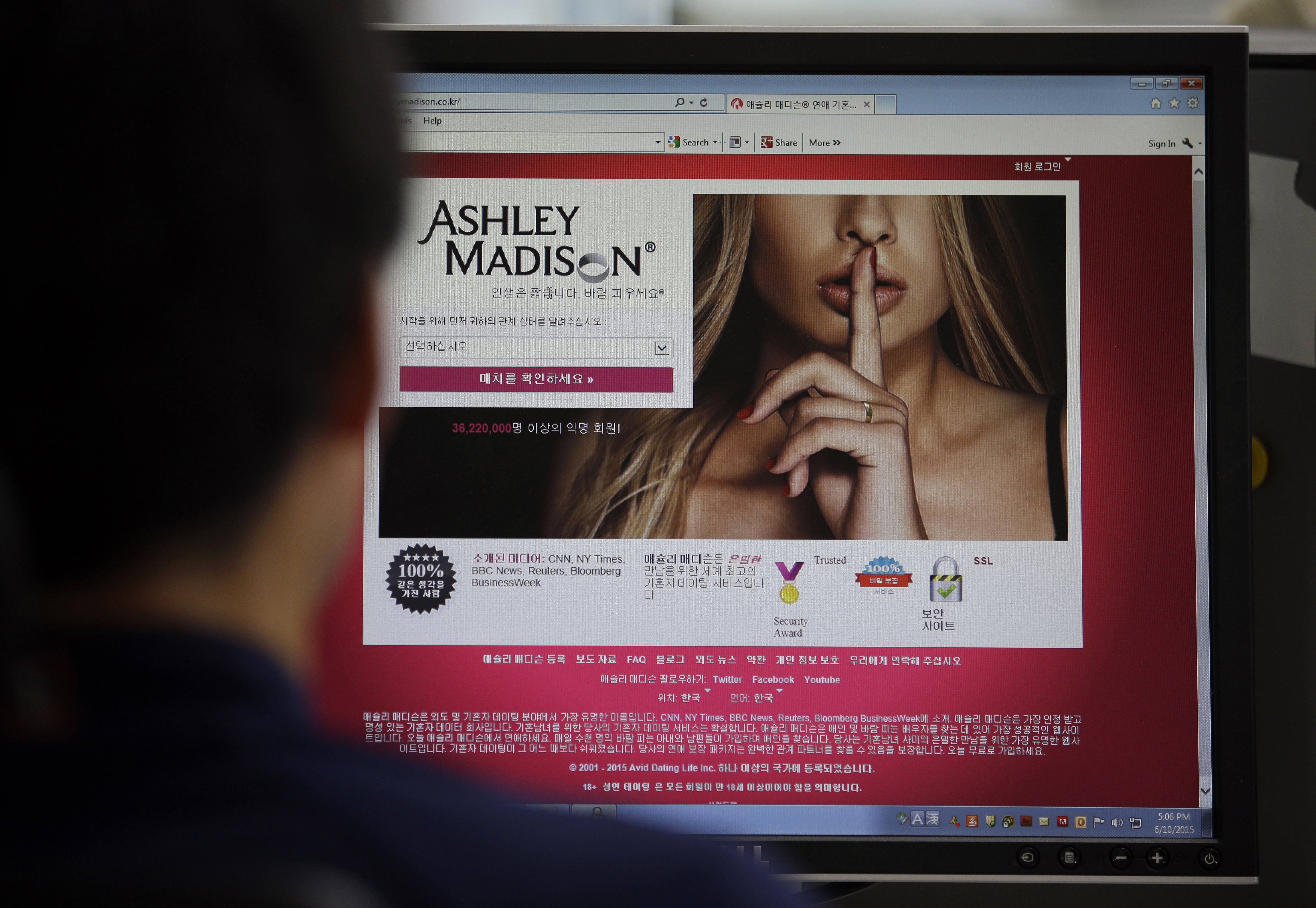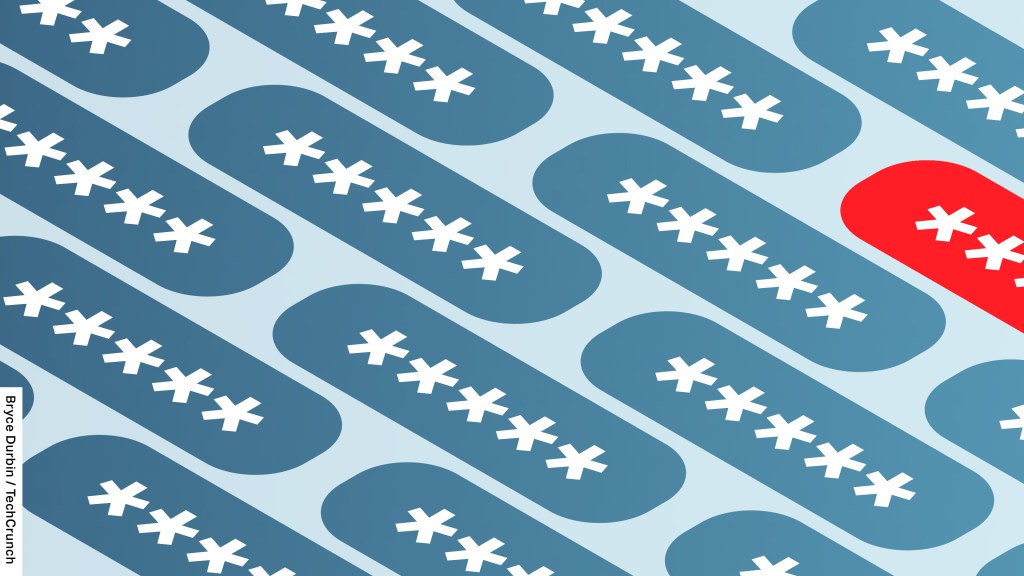When Troy Hunt launched Have I Been Pwned in late 2013, he wanted it to answer a simple question: Have you fallen victim to a data breach?
Seven years later, the data-breach notification service processes thousands of requests each day from users who check to see if their data was compromised — or pwned, with a hard “p” — by the hundreds of data breaches in its database, including some of the largest breaches in history. As it has grown, now sitting just below the 10 billion breached-records mark, the answer to Hunt’s original question is more clear.
“Empirically, it’s very likely,” Hunt told me from his home on Australia’s Gold Coast. “For those of us that have been on the internet for a while it’s almost a certainty.”
What started out as Hunt’s pet project to learn the basics of Microsoft’s cloud, Have I Been Pwned quickly exploded in popularity, driven in part by its simplicity to use, but largely by individuals’ curiosity.
As the service grew, Have I Been Pwned took on a more proactive security role by allowing browsers and password managers to bake in a backchannel to Have I Been Pwned to warn against using previously breached passwords in its database. It was a move that also served as a critical revenue stream to keep down the site’s running costs.
But Have I Been Pwned’s success should be attributed almost entirely to Hunt, both as its founder and its only employee, a one-man band running an unconventional startup, which, despite its size and limited resources, turns a profit.
As the workload needed to support Have I Been Pwned ballooned, Hunt said the strain of running the service without outside help began to take its toll. There was an escape plan: Hunt put the site up for sale. But, after a tumultuous year, he is back where he started.
Ahead of its next big 10-billion milestone mark, Have I Been Pwned shows no signs of slowing down.
‘Mother of all breaches’
Even long before Have I Been Pwned, Hunt was no stranger to data breaches.
By 2011, he had cultivated a reputation for collecting and dissecting small — for the time — data breaches and blogging about his findings. His detailed and methodical analyses showed time and again that internet users were using the same passwords from one site to another. So when one site was breached, hackers already had the same password to a user’s other online accounts.
Then came the Adobe breach, the “mother of all breaches,” as Hunt described it at the time: More than 150 million user accounts had been stolen and were floating around the web.
Hunt obtained a copy of the data and, with a handful of other breaches he had already collected, loaded them into a database searchable by a person’s email address, which Hunt saw as the most common denominator across all the sets of breached data.
And Have I Been Pwned was born.
It didn’t take long for its database to swell. Breached data from Sony, Snapchat and Yahoo soon followed, racking up millions more records in its database. Have I Been Pwned soon became the go-to site to check if you had been breached. Morning news shows would blast out its web address, resulting in a huge spike in users — enough at times to briefly knock the site offline. Hunt has since added some of the biggest breaches in the internet’s history: Myspace, Zynga, Adult Friend Finder and several huge spam lists.
As Have I Been Pwned grew in size and recognition, Hunt remained its sole proprietor, responsible for everything from organizing and loading the data into the database to deciding how the site should operate, including its ethics.
Hunt takes a “what do I think makes sense” approach to handling other people’s breached personal data. With nothing to compare Have I Been Pwned to, Hunt had to write the rules for how he handles and processes so much breach data, much of it highly sensitive. He does not claim to have all the answers, but relies on transparency to explain his rationale, detailing his decisions in lengthy blog posts.
His decision to only let users search for their email address makes logical sense, driven by the site’s only mission, at the time, to tell a user if they had been breached. But it was also a decision centered around user privacy that helped to future-proof the service against some of the most sensitive and damaging data he would go on to receive.
In 2015, Hunt obtained the Ashley Madison breach. Millions of people had accounts on the site, which encourages users to have an affair. The breach made headlines, first for the breach, and again when several users died by suicide in its wake.

Hunt diverged from his usual approach, acutely aware of its sensitivities. The breach was undeniably different. He recounted a story of one person who told him how their local church posted a list of the names of everyone in the town who was in the data breach.
“It’s clearly casting a moral judgment,” he said, referring to the breach. “I don’t want Have I Been Pwned to enable that.”
Unlike earlier, less-sensitive breaches, Hunt decided that he would not allow anyone to search for the data. Instead, he purpose-built a new feature allowing users who had verified their email addresses to see if they were in more sensitive breaches.
“The purposes for people being in that data breach were so much more nuanced than what anyone ever thought,” Hunt said. One user told him he was in there after a painful break-up and had since remarried but was labeled later as an adulterer. Another said she created an account to catch her husband, suspected of cheating, in the act.
“There is a point at which being publicly searchable poses an unreasonable risk to people, and I make a judgment call on that,” he explained.
The Ashely Madison breach reinforced his view on keeping as little data as possible. Hunt frequently fields emails from data breach victims asking for their data, but he declines every time.
“It really would not have served my purpose to load all of the personal data into Have I Been Pwned and let people look up their phone numbers, their sexualities, or whatever was exposed in various data breaches,” said Hunt.
“If Have I Been Pwned gets pwned, it’s just email addresses,” he said. “I don’t want that to happen, but it’s a very different situation if, say, there were passwords.”
But those remaining passwords haven’t gone to waste. Hunt also lets users search more than half a billion standalone passwords, allowing users to search to see if any of their passwords have also landed in Have I Been Pwned.
Anyone — even tech companies — can access that trove of Pwned Passwords, he calls it. Browser makers and password managers, like Mozilla and 1Password, have baked-in access to Pwned Passwords to help prevent users from using a previously breached and vulnerable password. Western governments, including the U.K. and Australia, also rely on Have I Been Pwned to monitor for breached government credentials, which Hunt also offers for free.
“It’s enormously validating,” he said. “Governments, for the most part, are trying to do things to keep countries and individuals safe — working under extreme duress and they don’t get paid much,” he said.
“There have been similar services that have popped up. They’ve been for-profit — and they’ve been indicted.”
Troy Hunt
Hunt recognizes that Have I Been Pwned, as much as openness and transparency is core to its operation, lives in an online purgatory under which any other circumstances — especially in a commercial enterprise — he would be drowning in regulatory hurdles and red tape. And while the companies whose data Hunt loads into his database would probably prefer otherwise, Hunt told me he has never received a legal threat for running the service.
“I’d like to think that Have I Been Pwned is at the far-legitimate side of things,” he said.
Others who have tried to replicate the success of Have I Been Pwned haven’t been as lucky.
“There have been similar services that have popped up,” said Hunt. “They’ve been for-profit — and they’ve been indicted,” he said.
LeakedSource was, for a time, one of the largest sellers of breach data on the web. I know, because my reporting broke some of their biggest gets: music streaming service Last.fm, adult dating site AdultFriendFinder and Russian internet giant Rambler.ru to name a few. But what caught the attention of federal authorities was that LeakedSource, whose operator later pleaded guilty to charges related to trafficking identity theft information, indiscriminately sold access to anyone else’s breach data.
“There is a very legitimate case to be made for a service to give people access to their data at a price.”
Hunt said he would “sleep perfectly fine” charging users a fee to access their data. “I just wouldn’t want to be accountable for it if it goes wrong,” he said.
Project Svalbard
Five years into Have I Been Pwned, Hunt could feel the burnout coming.
“I could see a point where I would be if I didn’t change something,” he told me. “It really felt like for the sustainability of the project, something had to change.”
He said he went from spending a fraction of his time on the project to well over half. Aside from juggling the day-to-day — collecting, organizing, deduplicating and uploading vast troves of breached data — Hunt was responsible for the entirety of the site’s back-office upkeep — its billing and taxes — on top of his own.
The plan to sell Have I Been Pwned was code-named Project Svalbard, named after the Norwegian seed vault that Hunt likened Have I Been Pwned to, a massive stockpile of “something valuable for the betterment of humanity,” he wrote announcing the sale in June 2019. It would be no easy task.
Hunt said the sale was to secure the future of the service. It was also a decision that would have to secure his own. “They’re not buying Have I Been Pwned, they’re buying me,” said Hunt. “Without me, there’s just no deal.” In his blog post, Hunt spoke of his wish to build out the service and reach a larger audience. But, he told me, it was not about the money.
As its sole custodian, Hunt said that as long as someone kept paying the bills, Have I Been Pwned would live on. “But there was no survivorship model to it,” he admitted. “I’m just one person doing this.”
By selling Have I Been Pwned, the goal was a more sustainable model that took the pressure off him, and, he joked, the site wouldn’t collapse if he got eaten by a shark, an occupational hazard for living in Australia.
But chief above all, the buyer had to be the perfect fit.
Hunt met with dozens of potential buyers, and many in Silicon Valley. He knew what the buyer would look like, but he didn’t yet have a name. Hunt wanted to ensure that whomever bought Have I Been Pwned upheld its reputation.
“Imagine a company that had no respect for personal data and was just going to abuse the crap out of it,” he said. “What does that do for me?” Some potential buyers were driven by profits. Hunt said any profits were “ancillary.” Buyers were only interested in a deal that would tie Hunt to their brand for years, buying the exclusivity to his own recognition and future work — that’s where the value in Have I Been Pwned is.
Hunt was looking for a buyer with whom he knew Have I Been Pwned would be safe if he were no longer involved. “It was always about a multiyear plan to try and transfer the confidence and trust people have in me to some other organizations,” he said.

The vetting process and due diligence was “insane,” said Hunt. “Things just drew out and drew out,” he said. The process went on for months. Hunt spoke candidly about the stress of the year. “I separated from my wife early last year around about the same time as the [sale process],” he said. They later divorced. “You can imagine going through this at the same time as the separation,” he said. “It was enormously stressful.”
Then, almost a year later, Hunt announced the sale was off. Barred from discussing specifics thanks to non-disclosure agreements, Hunt wrote in a blog post that the buyer, whom he was set on signing with, made an unexpected change to their business model that “made the deal infeasible.”
“It came as a surprise to everyone when it didn’t go through,” he told me. It was the end of the road.
Looking back, Hunt maintains it was “the right thing” to walk away. But the process left him back at square one without a buyer and personally down hundreds of thousands in legal fees.
After a bruising year for his future and his personal life, Hunt took time to recoup, clambering for a normal schedule after an exhausting year. Then the coronavirus hit. Australia fared lightly in the pandemic by international standards, lifting its lockdown after a brief quarantine.
Hunt said he will keep running Have I Been Pwned. It wasn’t the outcome he wanted or expected, but Hunt said he has no immediate plans for another sale. For now it’s “business as usual,” he said.
In June alone, Hunt loaded over 102 million records into Have I Been Pwned’s database. Relatively speaking, it was a quiet month.
“We’ve lost control of our data as individuals,” he said. But not even Hunt is immune. At close to 10 billion records, Hunt has been “pwned” more than 20 times, he said.
Earlier this year Hunt loaded a massive trove of email addresses from a marketing database, dubbed “Lead Hunter.” He fed some 68 million records into Have I Been Pwned. Hunt said someone had scraped a ton of publicly available web domain record data and repurposed it as a massive spam database. But someone left that spam database on a public server, without a password, for anyone to find. Someone did, and passed the data to Hunt. Like any other breach, he took the data, loaded it in Have I Been Pwned and sent out email notifications to the millions who have subscribed.
“Job done,” he said. “And then I got an email from Have I Been Pwned saying I’d been pwned.”
He laughed. “It still surprises me the places that I turn up.”
Related stories:































Comment